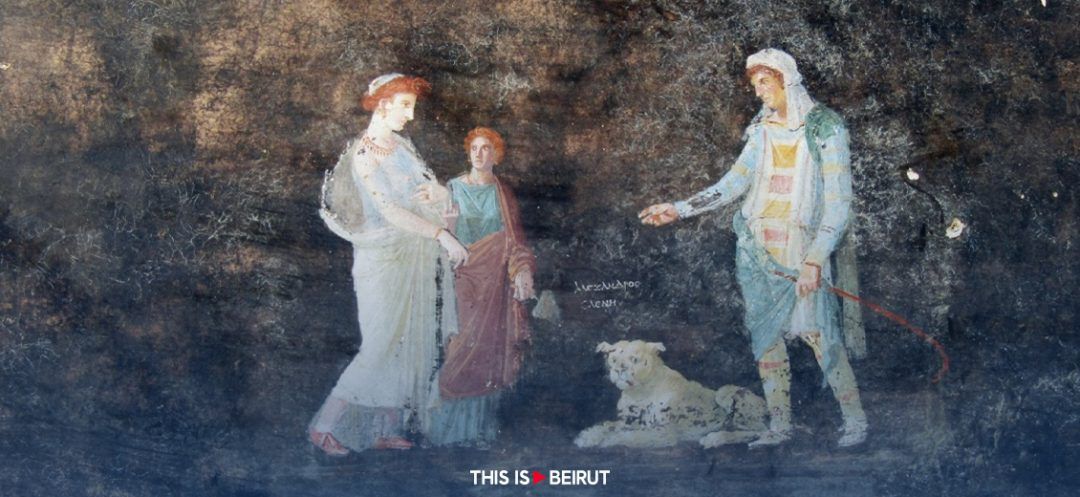
©Photo by: Handout/Parco Archeologico di Pompei press office/AFP
Discovering Pompeii's opulent past through a newly unearthed banquet hall adorned with mythological frescoes, which reveals Roman life's richness and complexity.
In the shadow of Mount Vesuvius, Pompeii continues to reveal its ancient secrets, with the recent discovery of a banqueting hall adorned with exceptional frescoes from Greek mythology, shedding light on the opulent lifestyle of its ancient residents. This grand hall, where ancient Romans feasted by candlelight, has been unearthed, as announced by the archaeological park.
The hall, measuring 15 meters by six meters, served as a pivotal gathering space for Pompeii’s elite. The well-preserved frescoes depict scenes such as Apollo’s attempt to seduce the Trojan priestess Cassandra and the infamous encounter between Helen of Troy and Paris, which led to the Trojan War. "The mythical couples were starting points for talking about the past and life," explained Pompeii’s director, Gabriel Zuchtreigel. He further elaborated on the practicality of the black walls, designed to conceal soot from the lamps, thus enhancing the ambiance of the nocturnal banquets. "Here they gathered to feast after sunset, the flickering light of the lamps made the images seem to move, especially after a few glasses of good Campania wine," Zuchtreigel remarked, capturing the immersive dining experience.
[gallery link="none" size="full" ids="244286,244287,244288,244289,244290,244291"]
Recent excavations also unveiled a bakery, a laundry and houses with sumptuous frescoed living rooms, further cementing Pompeii’s status as an archaeological gem. Italian Culture Minister Gennaro Sangiuliano commented on the continuous revelation of significant finds, stating, "Pompeii is truly a treasure chest that never ceases to surprise us."
The catastrophic eruption of Mount Vesuvius in AD 79 devastated Pompeii, but the consequent layer of ash and rock preserved many buildings and victims, offering a snapshot of ancient Roman life. The banqueting hall, with its intact white mosaic floor, showcases the high standard of living in Pompeii’s residences. The frescoes, with themes of heroism and destiny, underscore the Roman engagement with concepts of individual fate and divine will.
The social and intellectual significance of these frescoes was profound, providing guests with rich topics for discussion and reflection on the nature of existence. "The frequent presence of mythological figures on frescoes in the reception rooms of Roman houses had precisely the social function of entertaining guests, providing subjects for conversation and reflection on the meaning of existence," explained the park’s statement.
Adjacent to the banqueting hall is a courtyard leading to a staircase to the upper floor, where construction materials and charcoal drawings were found, suggesting ongoing enhancements before the eruption. "Someone had drawn in charcoal, on the rough plaster of the arches of the great staircase, two pairs of gladiators and what appears to be an enormous stylized phallus," revealed the park’s statement, adding a layer of intrigue to the site’s history.
As a UNESCO World Heritage Site and Italy’s second most visited location, Pompeii captivates global audiences with its historical and archaeological richness. The city offers a vivid window into ancient life, culture and art, with each excavation peeling back layers of history and revealing the enduring legacy of Roman society.
The unveiling of the banqueting hall in Pompeii not only enriches our understanding of Roman life and culture, but also highlights the city’s importance as a historical and archaeological treasure. With every discovery, Pompeii continues to narrate its storied past, bridging ancient and modern times and showcasing the timeless allure of its archaeological wonders.
With AFP
Read more



Comments